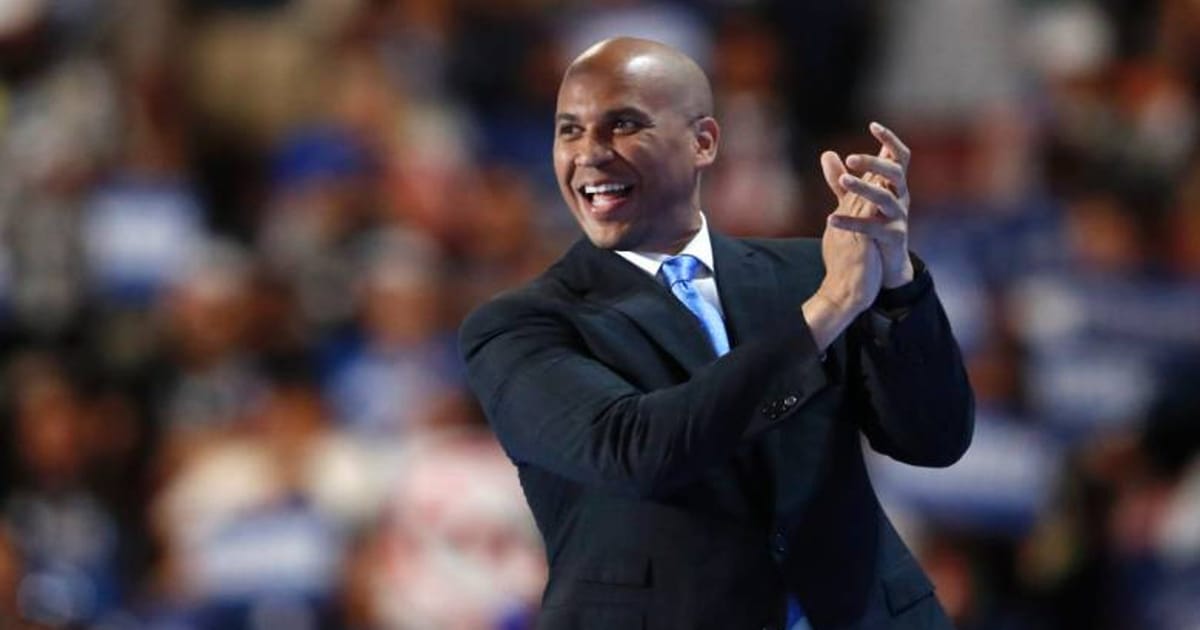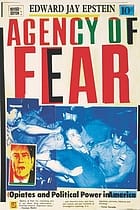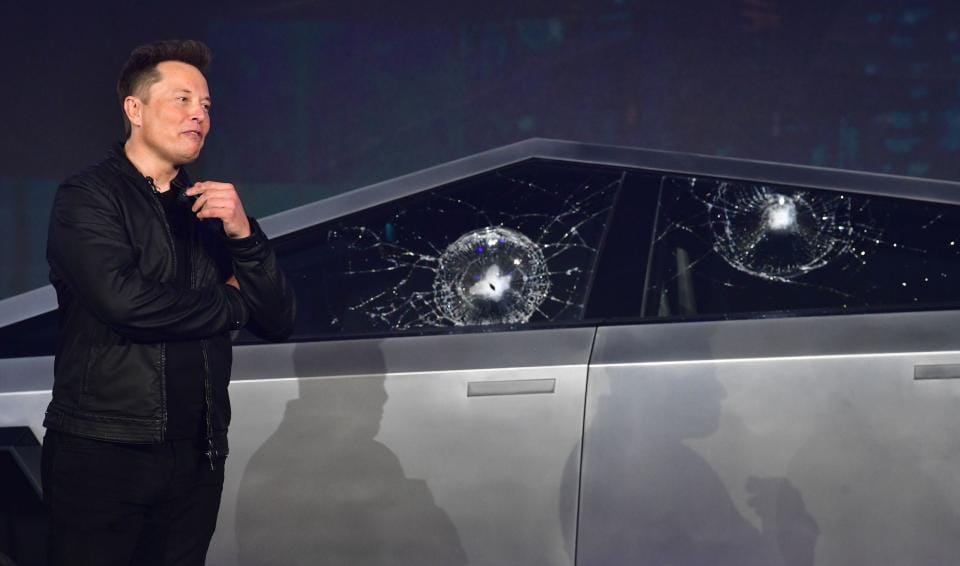Corey Booker Made Me Cry; Now Let's Block the Coup

Yes, Cory Booker, you made me cry.
I certainly hadn’t planned on that. As his marathon Monday-night speech before the Senate drove towards a record 25 hours, I was channel-flipping between such sports fare as Lakers versus Rockets and Dodger versus Braves, and also had the laptop open, second-screening away. But he seized my attention with his take on the economic ruin that Trump, in his misguided moves rapidly spreading fiscal woe, has pursued. Booker: "In the 72 days that Trump has been in office, he has caused havoc on the American economy, especially given the economy he inherited. Inflation is up, prices are up, consumer confidence is down, the stock market and people's 401ks and retirement plans are down."
This mind you, before the worst of the impact showed up in classic “if it’s not a mess it will do until the mess gets here” fashion. By Friday the sad results were in on a Wall Street week that would sack the economy more disruptively and precipitously than anything since Covid in 2020. .
Senator Chris Murphy of Connecticut, who’s had his own well-stoked fire in the belly since fighting uphill for sincere attention to be paid after the 2012 Sandy Hook elementary school massacre, was marked present for the entire oration—an address quite splendidly forceful and cogent throughout its length.
But it was left for Senator Chuck Schumer (who has withstood some perhaps misplaced criticism over yielding ground to the GOP for an unavoidable funding bill) to signal that the former longevity mark—which had been set by segregationist pustule Strom Thurmond , opposing the Civil rights Act of 1957–had been eclipsed.
Schumer: "Would the Senator yield for a question?"
Booker: "Chuck Schumer, it's the only time in my life I can tell you 'no.'"
Schumer: "I just want to tell you -a question. Do you know you have just broken the record? Do you know how proud this caucus is of you? Do you know how proud America is of you?"
The audience—yes, Booker’s loyal partisan cohort—burst into fervent applause as the senator clearly strove to control his emotions. The man then continued speaking for another hour of Obama-scale inspiration ("The power of the people is greater than the people in power") enroute to his ultimate closing remarks:
“Let’s get into trouble,” he would conclude, in a recall to his earlier tribute to the great civil rights activist John Lewis who spoke of `good trouble’, and finally said, quietly but still impassioned, “I yield the floor.”
The closing moments:
https://www.youtube.com/watch?v=s3L3eCGrT0g
Although his remarks, at every point I watched, were the paragon of sincere and substantial rhetoric, the magic wasn’t just the humbly worn heroism of his uncomplaining endurance. It was his compassionate eloquence as he called out Trumpism with details and spoke up for a vigorous humanity to fuel the pushback.
As a boomer raised in Booker’s home state of New Jersey even as the Newark riots of July, 1967 alarmed the state and the nation, I knew something of his adoptive city. A boomer raised in the bougie suburbs, I shared a suburban ethos with Booker, who played schoolboy football in sedate Old Tappan less than an hour’s drive from my town. He’d played tight end (ably but not as a star, with but 20 catches in four years) on a scholarship to Stanford, when he began his political career in his 30s (he turns 56 this month), he remade himself as the most earnest of office seekers. Newark’s pols had sharp elbows; a 2005 Oscar-nominated doc about Booker’s 2002 mayoral campaign was called “Street Fight,” and this appeal to the city’s underclass (excluding a gaggle of Bloods who reportedly targeted him for his anti-gun and anti-crime fervor) was proven multiple times as he lived and politicked on the mean streets, living for a bit in a trailer and even in a sidewalk tent.)
Was it solely his determination that moved me so, or was I in part mourning the seeming futility of what had become of the cherished hopes of Kamala Harris’s, now naïve-seeming campaign promises? (“And when we fight, we win.”)
Said `we'—and don’t forget that `we’ at best hovers around a disempowered fifty percent of the electorate no matter how destructive and moronic Trump continues to be—may be slowly coming around to realizing we are witnessing, and victim to, what is effectively a coup d’etat. The economic bloodbath that is still unfolding thanks to Trump’s ginned-up tariff war (based on “complete drivel…utterly deluded …a catalogue of foolishness” according to The Economist) is in some ways superficial compared to the ruination of our democracy.
I could not help but remember a book I reviewed, five decades ago when the Baltimore Sun books editor Stephen Hunter kind enough to permit me voyage into various tomes considering public affairs. One I keenly remembered, and re-read this week, issues what now seems a properly dire and quite prophetic warning: the will to power can trash the protections of a nominally tripartite system of government.: "Agency of Fear: Opiates and Political Power in America." The titular climate of fear could readily enough be applied to the DOGE onslaught of mindless depredations committed by Elon Musk and his pack of small-balls jackals. In our lives now, in the book’s narrative, comes a still-crucial message: with a brute series of maneuvers the executive branch can seize nearly untrammeled power, fighting lawmakers and courts alike. (Will the GOP weasels pay a price? Too soon to say.)

“This volume is seldom as dramatic as its title,” I wrote in the first paragraph of that September 1977 review, “though it does begin by showing the agency in question—The Office of Drug Abuse Law Enforcement—or ODALE—terrorizing two innocent Illinois families after breaking into their homes in a misguided search for narcotics.”

G. Gordon Liddy– the Musk of his day
The comparisons to Trump’s campaign of illegal deportations are probably too obvious to even recite here, and not unlike Trump’s unproven exaggerations about the actual current scourge of fentanyl, the threat of a illicit drugs sweeping the country into a crime wave has been repurposed now to enable an overzealous homeland security operation.

The Musk-like figures (with a dollop of the thundering, bellicose homeland secretary head Tom Homan) we find in Epstein’s book are the Watergate-era boldface names G. Gordon Liddy and Egil Krogh, who, I detailed, “respectively became the planning and striking arms of an anti-drug campaign Nixon designed after one Nelson Rockefeller had instituted, making the hroin vampire a national issue and [Rockefeller] vice president.” Krogh and Liddy, of course were among the burglarizing secret police (the `Plumbers’) controlled by the adminsitration operatives Haldeman and Ehrlichman.
Steve wrote a good headline: "Were Nixon and his narcs hooked on power?"
The congruencies don’t’ slope off there, as Epstein wrote and I quoted: “Nixon, realizing he securely controlled only the office of the president, methodically moved…under the aegis of a `war on heroin,’ [as] a series of new offices were set up…which, it was hoped, would provide the president with investigative agencies having the potential and wherewithal and personnel to assume the function of the `the Plumbers’ on a far grander scale.”
It's not much of a stretch to compare Elon Musk’s bro-ish triumph of the will cosplay frenzies with Elvis Presley handing Nixon a Colt .45 (plus bullets) in the Oval office by way of stan-ish encouragement.
As to the review’s overlap with our present governmental woes, it reads: “Exhaustively conscientious as it may be, the book does turn on a fascinating human flaw—the greed for power…for anyone worried about the specific institutions of the presidency, the media, and federal drug programs, the book is an indispensable text.”
One more observation seems to reward repeating: “Epstein also introduces a scarily credible subtext: the idea that the activities of the White House coterie represented an attempt at a coup d’etat. He reminds us that a coup is not a revolution, but a quiet seizure of power by those already within the highest circles of the government.”
For those who lived through and abominated Nixon, one has to ask—can you imagine a worse presidency?
The question answers itself. We might be forgiven if we wish for a similar denouement—a repeat of the televised moment when Nixon stepped aboard Marine One for his last wave and the last chopper lift off the White House lawn.


Comments ()